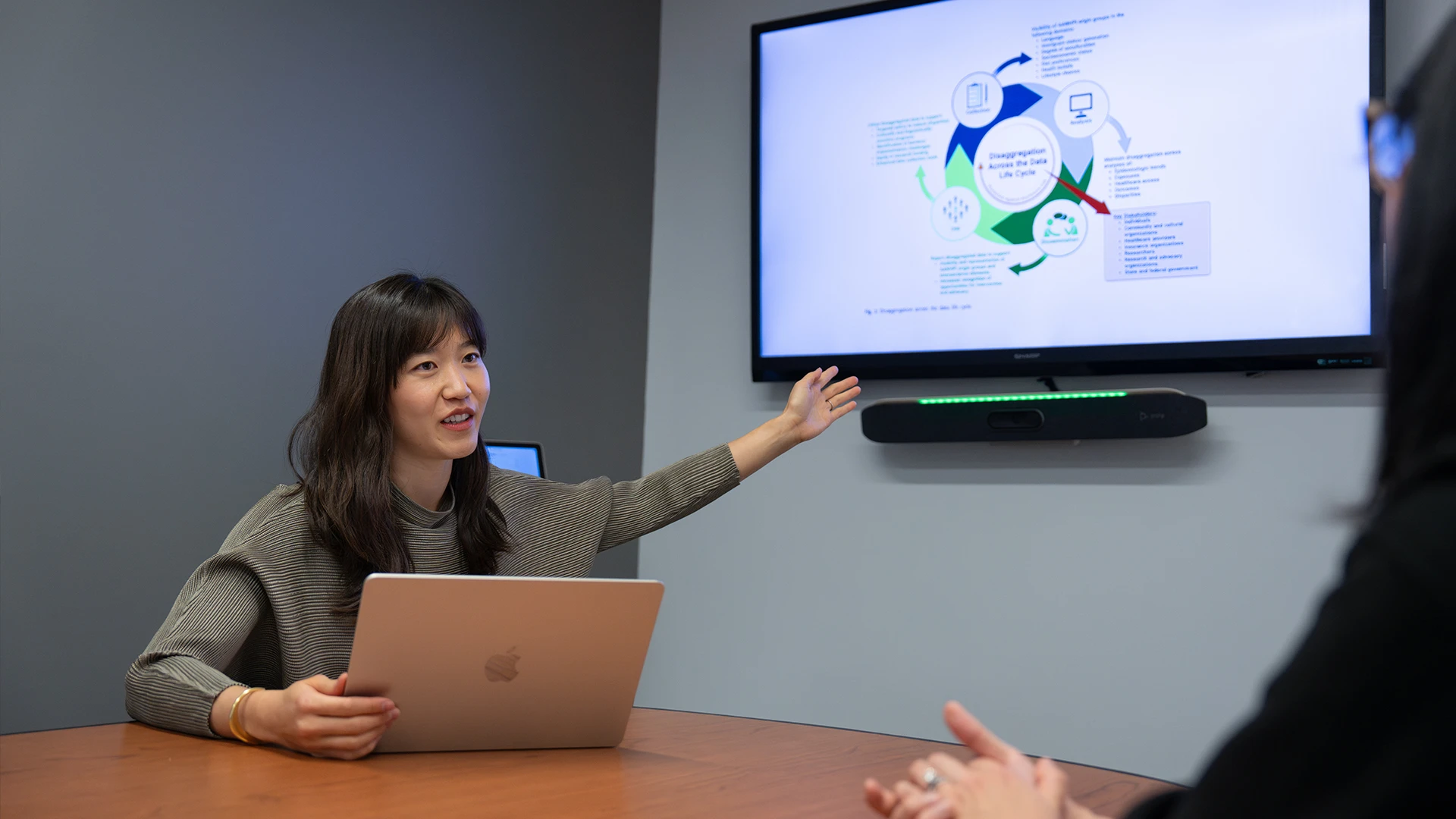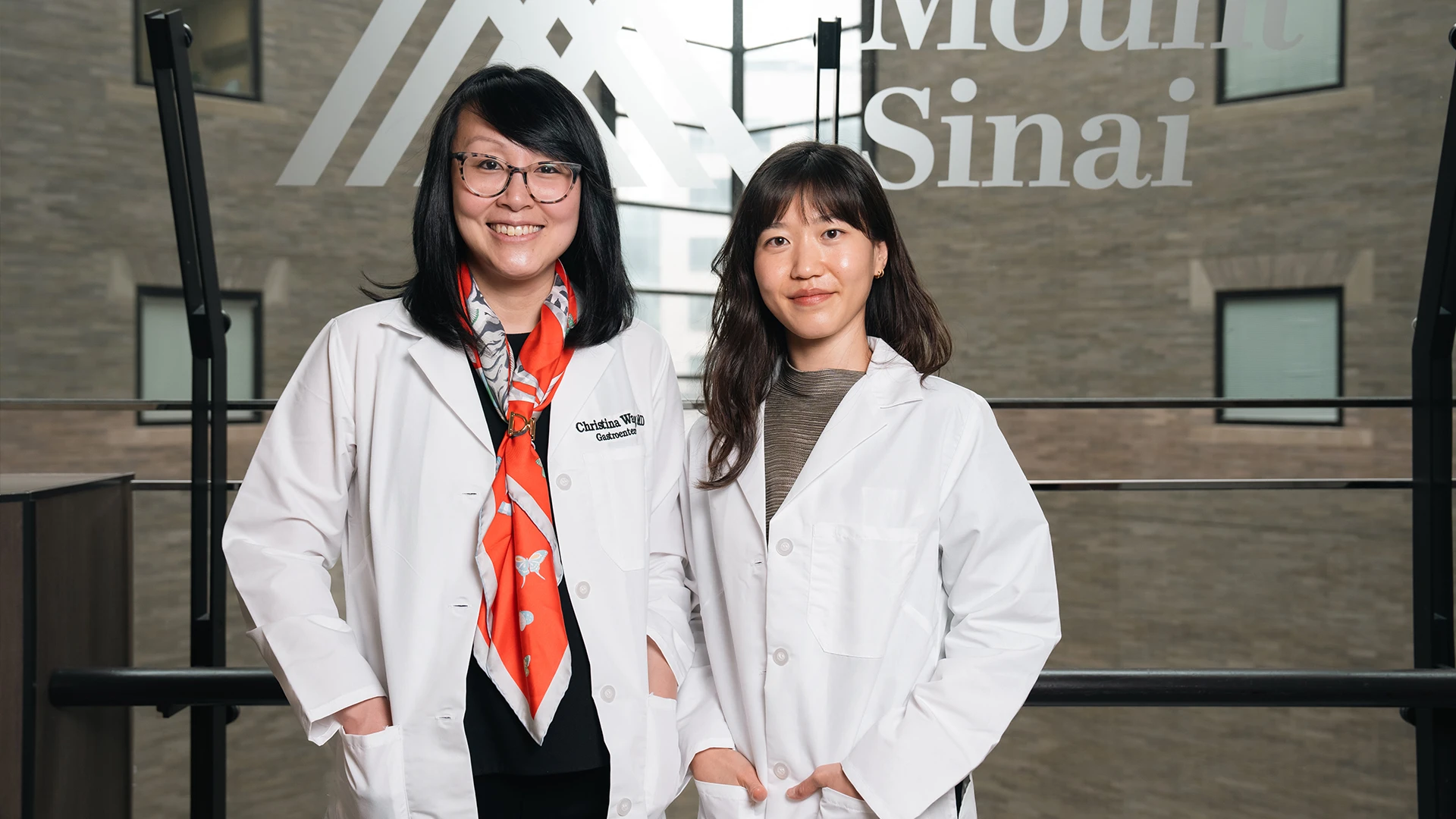In the course of their research into cancer screening guidelines for racial and ethnic populations in the United States, Christina Wang, MD, and Ji Yoon Yoon, MBBCh, Assistant Professors of Medicine (Gastroenterology) at the Icahn School of Medicine at Mount Sinai, became aware of unsettling disparities involving Asian Americans, the country’s fastest-growing racial group.
As described in their November 2024 study in The Lancet Regional Health – Americas, Asian Americans are often combined, as part of standard data collection, within a broader demographic that includes Native Hawaiians and Pacific Islanders, thereby overlooking their vast heterogeneity and hindering efforts to identify and address health disparities of individual populations.
This shortcoming becomes most glaring in pan-ethnic screening programs in the United States that ignore the prevalence of gastrointestinal cancers such as gastric, liver, pancreatic, and colorectal in some discrete communities.
“Right now, we don’t have more granular data for individual groups that capture lifestyles, dietary and cultural practices, health beliefs, and socioeconomic status—factors that we know shape cancer risk and outcomes,” says Dr. Wang, senior author of the study. “Consequently, we’re calling for disaggregated collection and reporting of data around each of these factors to inform more equitable risk-based approaches to cancer screening, and to guide cancer reduction efforts among heterogenous populations.”
Gastric cancer illustrates how such a strategy could identify barriers to, and effectively target gaps in, cancer care. There are currently no guidelines in this country for gastric cancer screening since the United States is considered to be a low- to intermediate-incidence country and, therefore, screening is not cost-effective for the general population. That ignores the fact that certain Asian American populations, such as Korean Americans, bear a higher stomach cancer burden and are often not diagnosed with the disease until late stage. In South Korea, however, Koreans benefit from an aggressive data-driven screening program that has managed to shift most stomach cancer diagnoses to early stage, significantly increasing the five-year survival and even cure rates for patients.

Dr. Yoon is among the researchers stressing the importance of looking at subgroups within the Asian American population to identify different types of gastrointestinal cancer risks.
In the United States, a culturally tailored cancer control program that has successfully increased colorectal cancer (CRC) screening is the Filipino-American Health Study. This multipronged intervention—led by Filipino health instructors with bilingual print material and personalized reminders—has resulted in a more than threefold increase in CRC screening among participants.
“Programs that are ethnically and linguistically concordant with the target population have a much better chance of achieving health recommendations for screening and treatment for members of their respective communities,” emphasizes Dr. Wang, whose research investigates the design of such programs for populations that are typically under-screened.
The need for data disaggregation has not gone unnoticed nationally. In 2021, the Biden administration issued an executive order for greater data segmentation throughout the data “life cycle,” including collection, analysis, dissemination, and protection.
“Benchmarks such as these at the federal and state government levels are helpful because they push health care systems and agencies, including hospitals, to collect data in this fashion,” explains Dr. Yoon, lead author of the study. “The downside is that those directives can take years to filter down, so it’s important for health care systems to act now in leading data disaggregation efforts.”
To that end, Mount Sinai researchers have called for the collection of high-quality data that go beyond broad race- and ethnic-based risk classifications, and that explore contributory elements such as ancestry, immigration status, gene-environment interactions, non-genetic exposures, and other social determinants of health. These efforts, they further pointed out, should be driven by culturally sensitive instruments and questionnaires that better assess dietary practices and health beliefs and behaviors that can impact cancer risk and outcomes in Asian American, Native Hawaiian, and Pacific Islander populations.
“We’re looking to change the mindset that has thought for so long of Asian Americans, and many other racial and ethnic groups, as homogeneous entities, thereby masking cancer disparities and the perception of clinical need within individual communities,” sums up Dr. Wang. “We hope our study encourages health care systems to look at this topic more seriously and to move toward data collection and disaggregation strategies that will improve cancer equity efforts.”

Dr. Wang, left, and Dr. Yoon want statisticians and health care providers to remember that Asian American populations are highly heterogeneous, with varying genetics, environmental interactions, dietary practices, and other social determinants of health across the different subgroups.
